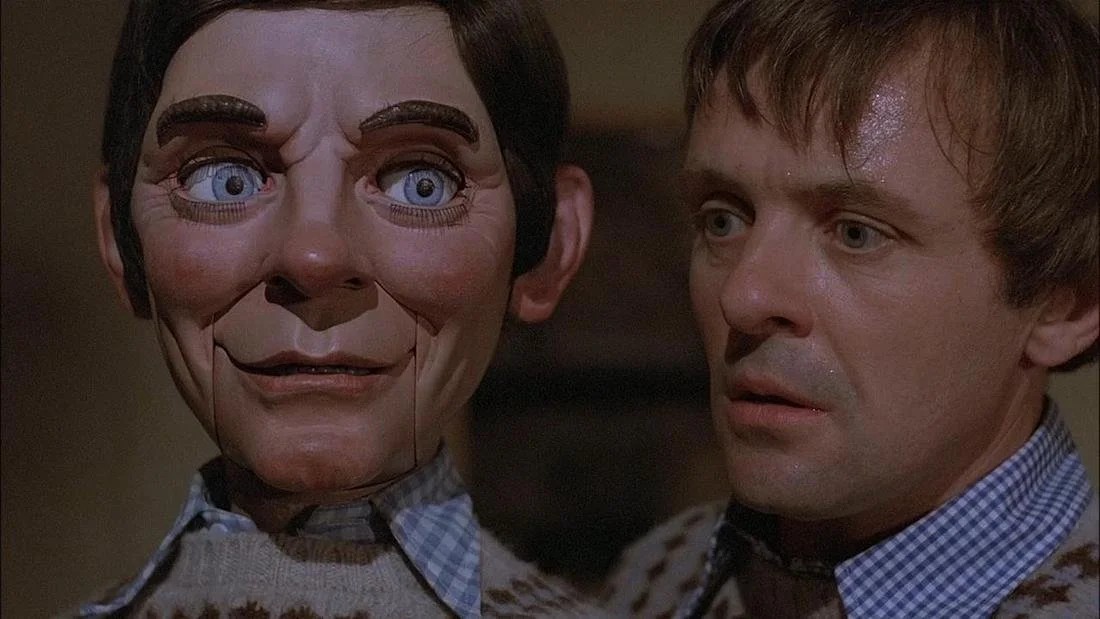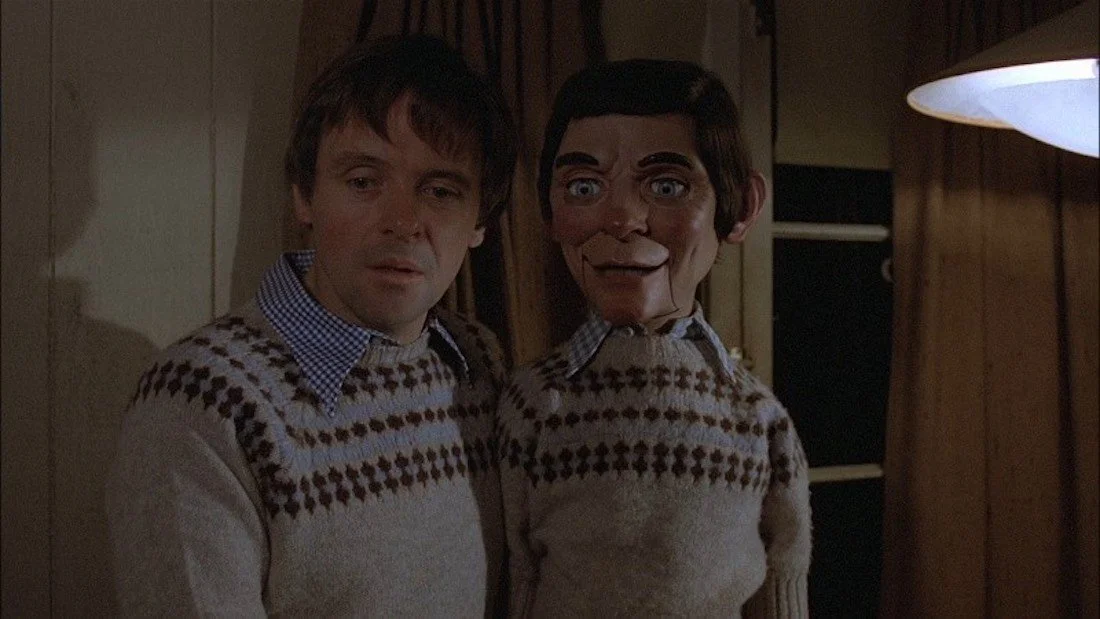MAGIC (1978)
All The World’s A Stage
What’s the price of success? Now more than ever do we see the wide gulch between the desire for fame and the actual talent to achieve it. The internet has unleashed an army of people who crave viral success so badly but lack the charisma and charm to rise above the sea of digital mediocrity. Despite this, so many persist in the hopes of someday breaking through based on the catch-all advice ‘Don’t give up,’ and ‘Just keep at it.’ What’s not considered is the psychic toll this failure can bring about to those with even the thickest of skin. Long before the age of YouTubers, actor turned director Richard Attenborough gave us MAGIC (1978) with a script by William Goldman based on his own novel that explores what happens when that thick skin cracks and no measure of success can mend it.
The film stars a young Anthony Hopkins as Corky Withers, an aspiring lounge magician who we meet just after he bombs onstage for the first time. Recounting how it went to his ailing father, Corky proceeds to do what he will ultimately do for the remainder of the film: lie. While he says how great he did, we see just awful it all went down to the point of lashing out at the audience. Hopkins does an incredible job playing the perpetually sweaty and uncomfortable Corky, so hellbent for success he’ll stop at nothing to achieve it.
The film cuts to one year later at the same nightclub, but now Corky’s a hit. We meet his manager, Ben Greene played to perfection by Burgess Meredith, who welcomes a skeptical network scout to see the show. At first, his doubts seem well-founded. That is until Corky brings on his secret weapon - a foul-mouthed ventriloquist dummy named Fats. With Fats’ raunchy banter, the audience is soon puddy in Corky’s hand. He’s found the perfect device to shield him from his crippling fear of failure.
Green soon tells Corky that his dreams are about to come true and that a deal for a television special is in the works. Then, a snag. The network demands a medical examination to which Corky flat-out refuses. Before Green has a chance to talk him down, Corky has grabbed Fats and hightails it out of the city and back to the Catskills where he grew up. He ends up at a rundown cabin resort owned by his old high school crush Peggy Ann, played by Ann-Margret, whose marriage is on the rocks.
Corky takes a cabin in order to ‘get his head on straight’ as he says. But while he spends his time wooing Peggy with the help of Fats, we see the facade start to slip. Like Norman Bates, Corky has given over a part of his psyche to Fats. He’s so dependent on him, that when Green discovers this, Corky can’t go five minutes without speaking through the dummy. This sequence between Hopkins and Meredith is perhaps the most unnerving and tensest of the film. Only William Goldman could craft such a nailbiter that consists of two men sitting in a room watching the seconds pass.
This is the magic (pun intended) of this film. The tension lies in watching Hopkins squirm and struggle to keep ahead of his own lies, whether it be how much he depends on Fats or making sure Peggy doesn’t find the corpse he just dumped in the lake. In this way, Corky has made the world's his stage and he absolutely will not bomb again. As Greene says early on, “Magic is misdirection. That’s all it is. And misdirection is getting people to look in the wrong place at the right times.” That’s all Corky is doing in order to trick the first audience member he failed to win over: Peggy.
Most people would not immediately think of Attenborough, a respected British stage and screen actor turned director of such classy affairs as A BRIDGE TOO FAR and YOUNG WINSTON as a good fit to helm this tawdry thriller. What he brings to the story is a deep understanding of the Corky character. With his history on the stage, he seems to empathize with the cracked performer to an almost uncomfortable degree. The strain and fear Corky experiences is clearly shot by someone who stood under those same blaring hot lights.
This is one of Attenborough’s rather clever tricks he pulls in the film. The other being the way he makes the viewer second guess whether Fats is just a dummy and Corky is crazy or if he is secretly an animate object. One way he does this is each time we cut back to Fats, he’s in a slightly different position, be it his body placement or where his eyes look. The effect is truly chilling. Apparently, Hopkins was so unnerved by the Fats dummy when he took him home to practice that he called Attenborough and threatened to throw the doll away. As the film progresses, Attenborough shoots him as if he’s more human than Hopkins who by the end looks more like the dummy than the dummy.
Like a master magician, this is Attenborough pulling a great misdirect. Fats is nothing more than a piece of wood, yet we see him as the true antagonist of the film. This allows us to empathize and root for Corky and his mad plan to win over Peggy even while he commits heinous acts of violence and manipulation. Just like in Corky’s act, Fat absorbs the negative energy of the audience, leaving Corky to pull off his ultimate trick. The problem is, the more Corky works to hide his true self, the more he depends on Fats as the criminal mastermind to cover his tracks. With each trick to keep his lies afloat, the deeper he sinks into murky water where the line between him and Fats is ever more blurred.





